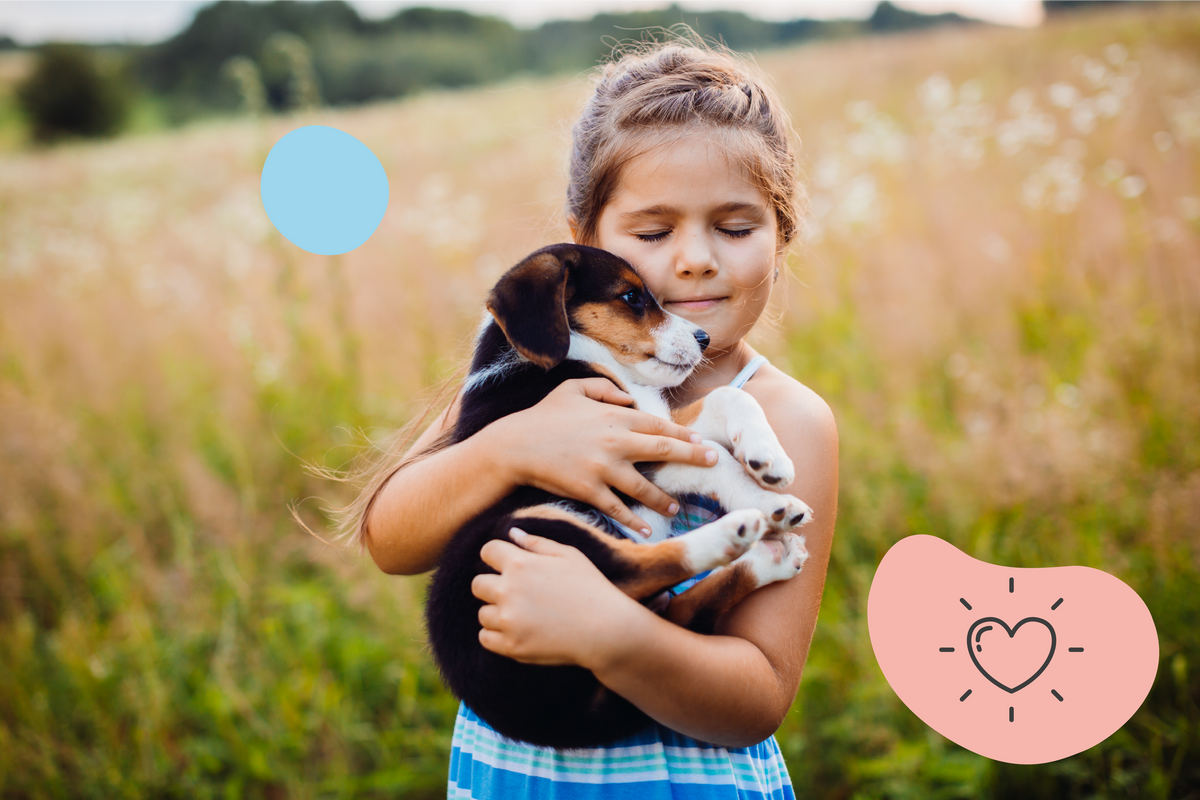How to educate a puppy?

When a puppy comes into the family, you have to be prepared to welcome him properly and be patient in teaching him the basic rules of the house! Just like children, puppies go through stages of learning and the way in which you take care of your puppy will be of great importance if he is to spend the rest of his life in your company in peace. Find out our tips on how to train your puppy in the right way!
Teaching your puppy the basic rules
The first step in training your puppy is to learn what are considered the basic rules for living together in the family home :
Basic commands
The words "sit," "down," "stand," "heel," "stay," "stop/no," and "let go" are considered the basic commands your puppy should know.
Spend just 10 minutes a day teaching your puppy these simple words, it will not feel like a chore and will not become unnecessarily exhausted.
There are also several things to consider if you want to learn these commands properly :
Try to be patient
Choose one simple word to describe a command and use the same word each time. For example, when teaching your puppy to sit, don't say 'sit' and then 'go sit'.
To make learning easier, make sure you're in a quiet environment with no outside noise or distractions to keep your puppy calm and attentive.
Potty training
To housebreak your puppy, you can take him out for about 15 minutes after his meal and stay out until he does his thing. You should take your puppy out regularly (ideally three times a day) and reward him when he's done to help him learn quickly.
A puppy that is just starting to be housebroken may sometimes not be able to hold it in or may even forget it when it gets emotional. You should never punish him, as this would be counterproductive! Simply be tolerant of small accidents and ignore the fact that it did not restrain itself. Don't clean up the "mess" in front of him, take him straight out and clean up later, out of his sight.
Knowing how to be alone
To prevent your puppy from developing anxiety about abandonment and from barking incessantly or making mischief in your home while you're away, you need to teach him to be alone. To do this, avoid responding to all his requests for attention, push him away little by little and call him back a few minutes later to satisfy his desire, having taken the initiative yourself this time. Also, when you leave your home, avoid over-reassuring your puppy. Words such as "be good," "I'll be back soon," in a gentle tone of voice, and stopping to pet your puppy will increase the feeling of abandonment. To make each departure less dramatic, you can ignore your puppy for 15 to 30 minutes before each departure.
Social skills
While it's important that your puppy learns to be on its own quickly, it's also important that it learns to socialise. When it arrives in your home, it is important that it has direct contact with all the members of the family and that it creates bonds with each of them (through play, walks, brushing, etc.).
Training your puppy using a positive reward system
Training a puppy requires a lot of patience, time and, above all, a positive approach to teaching it new things. It goes without saying that using punishment when your puppy doesn't do what you want him to do will frighten and put him off rather than encourage him.
However, when his behaviour meets your expectations, it's time to reward it properly. There are several ways to do this:
Oral encouragements
Using a firm yet gentle and encouraging voice, you can verbally congratulate your puppy, who will understand from the sound of your voice that you are happy and this will encourage him or her to continue on this path.
Petting
Another way to praise your puppy when it's making progress in its training can be through petting. The tender gestures will let him or her know that the attitude has been positive and he or she will repeat the same pattern the next few times.
Play Time
Once your puppy has learned a command by staying focused for several minutes, you can play for a while after learning. This will allow him/her to "decompress" and serve as a reward for having learned his/her lessons.
Treats
When your puppy follows instructions, you can give it treats, which will make it want to behave as often as possible. However, to keep your puppy healthy, you should choose quality products made from natural ingredients and without added sugar, flavouring, colouring or preservatives. On the Marly & Dan website, you will find a variety of treats of this type, in the form of dental sticks, chewy bars, or even tender bites, for the greatest pleasure of your dog's mouth!




